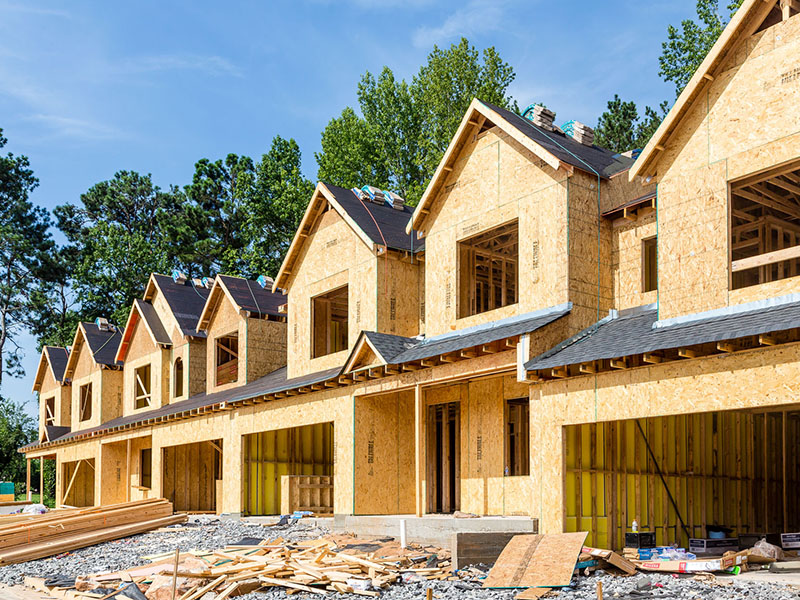
The Liberal government is dusting off a measure it promised years ago and pulling in other parties’ proposals for cheaper groceries and more homes as it struggles to tackle affordability concerns that are top-of-mind for many Canadians.
“The promise of Canada is about every generation reaching even higher than the previous one,” Prime Minister Justin Trudeau said Thursday.
“Our job as a government, as a team, is to secure that promise.”
He spoke to reporters at the end of a three-day caucus retreat in London, Ont., with most of his party’s 158 MPs standing on risers in the background and clapping throughout the announcement and as Trudeau took questions from reporters.
MPs said the retreat involved frank exchanges on why the Liberals are polling at their lowest levels since taking office eight years ago.
Those polls suggest Canadians believe the Conservatives would do a better job dealing with affordability and housing concerns, while the NDP has aggressively called out corporations for the high cost of food.
Thursday’s announcements seek to address both issues.
Industry Minister François-Philippe Champagne said he will ask Canada’s five largest grocery companies to come up with a plan by Thanksgiving to stabilize prices, and that he is not ruling out forcing them to do so through tax measures.
In a press release, the Liberals also said they will take steps to “enhance competition across the Canadian economy,” giving the Competition Bureau the power to take action on corporations that work together to stifle consumer choice — specifically citing large grocery stores that have prevented competitors from setting up shop nearby.
But most of Thursday’s measures surrounded housing, with the federal government pledging to remove GST on construction of new rental apartment buildings — a move Trudeau first promised in the 2015 election that brought the Liberals to power.
On Thursday, Trudeau said Liberals deliberately scrapped that promise because it didn’t respond to needs at the time.
Housing minister Sean Fraser said other housing policies seemed to yield “a better return on our investment” early in the Liberals’ term, but he said the GST cut is now a better tool to fix problems that emerged in the Covid-19 pandemic “that have made it more expensive to build the kinds of homes that people can actually afford.”
The measure would lower the cost of labour and materials for homebuilders, and Trudeau said he hopes other provinces follow Ontario’s Thursday announcement that they will remove their own sales taxes on the cost of building new rental homes too.
The Liberals have also followed Conservative Leader Pierre Poilievre in pointing the finger at municipalities for exclusionary zoning policies that prevent homes from getting built.
Fraser sent a letter to Calgary’s mayor Thursday urging city council to make it easier for homeowners to rent out their basements. The current process involves reams of paperwork and attempts at changing the policy have led to heated council meetings.
“We will never solve the housing crisis in Calgary if it is not legal to build the homes required to meet the moment,” Fraser wrote in a letter to Mayor Jyoti Gondek that she released on X, formerly known as Twitter.
The letter noted that cities must encourage building apartments near public transit in order to get federal funding through the housing accelerator fund.
On Wednesday, London became the first city to get its funding approved. While the $4-billion fund was announced in the 2022 budget, applications opened in July. Trudeau blamed mayors for the delay Wednesday.
Trudeau stressed that any progress on housing will require intergovernmental collaboration, and time.
“This is something that all Canadians are worried about,” the prime minister said.
“We know that housing is a problem that takes decades to address.”
The opposition says the Liberals are simply responding too late.
In a press conference of his own, Poilievre pledged similar measures that would reward and punish municipalities based on whether they have policies that encourage building homes.
His proposals include removing the GST from building new, affordable rental apartments, and he took a shot at Trudeau for breaking his 2015 promise.
“He’s flip-flopped again and he expects you to believe it,” he told reporters in Vancouver.
Poilievre took aim at what he described as the “housing hell” that “Justin Trudeau and the NDP have unleashed on Vancouver and on all of Canada,” citing a decline in the number of new builds.
The NDP noted that they called for the GST to be dropped on new, affordable rental buildings six months ago, and said an entire construction season has passed since then.
They also questioned whether the measures will be targeted at affordable homes or include “luxury condos.”
The New Democrats further argued that the Liberals could have put pressures on large grocers months ago when prices started spiking.
“His plan is vague and doesn’t force CEOs to act,” NDP leader Jagmeet Singh wrote in a press release.
The Liberals are also making changes to the Canada Emergency Business Account program, including extending the repayment deadline by a year, to the end of 2026.
During the pandemic, the program provided up to $60,000 in interest-free loans to small businesses and not-for-profits. The Liberals are further extending the repayment deadline, and offering low-interest financing to businesses that don’t pay back the loan on time.
Yet the deadline to pay back the loans and be eligible for partial loan forgiveness has only been extended by a few weeks to Jan. 18, 2024, which the Canadian Federation of Independent Business decried as “not good enough.”
Meanwhile, the Liberals are pledging further, unspecified action on affordability this fall.
Champagne said he took note of moves by French supermarket chain Carrefour to wrangle lower prices out of global brands such as Nestle and Unilever.
This week, the supermarket chain started using “shrinkflation” warning stickers on products that have shrunk in size but risen in cost despite the price of raw materials stabilizing.
With files from Nojoud Al Mallees in Ottawa